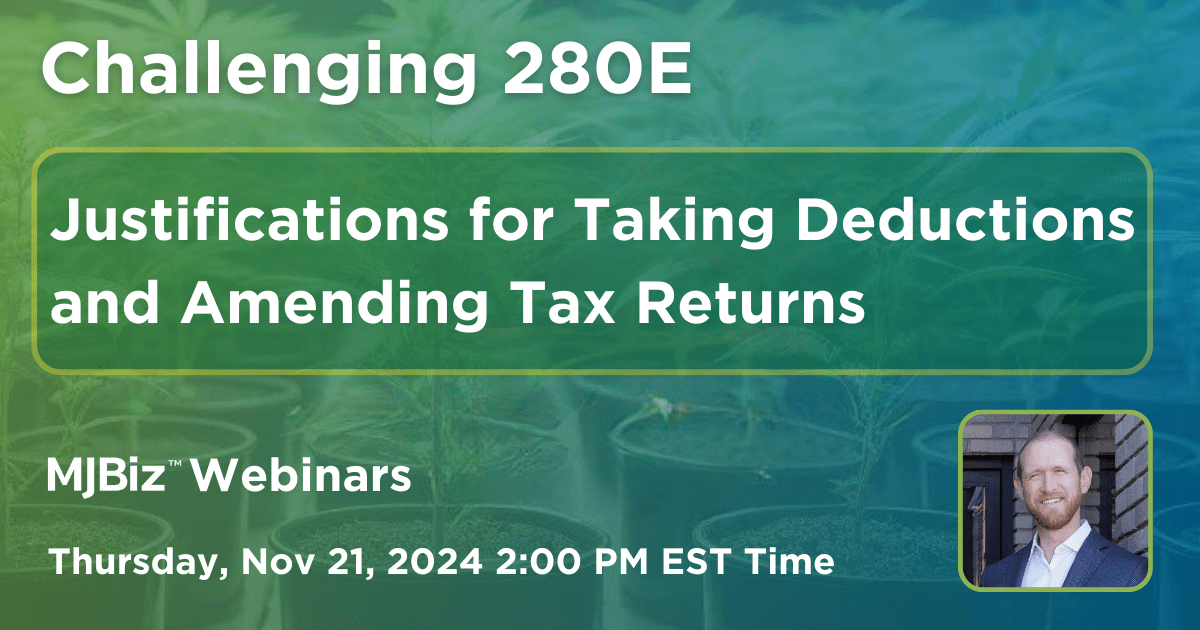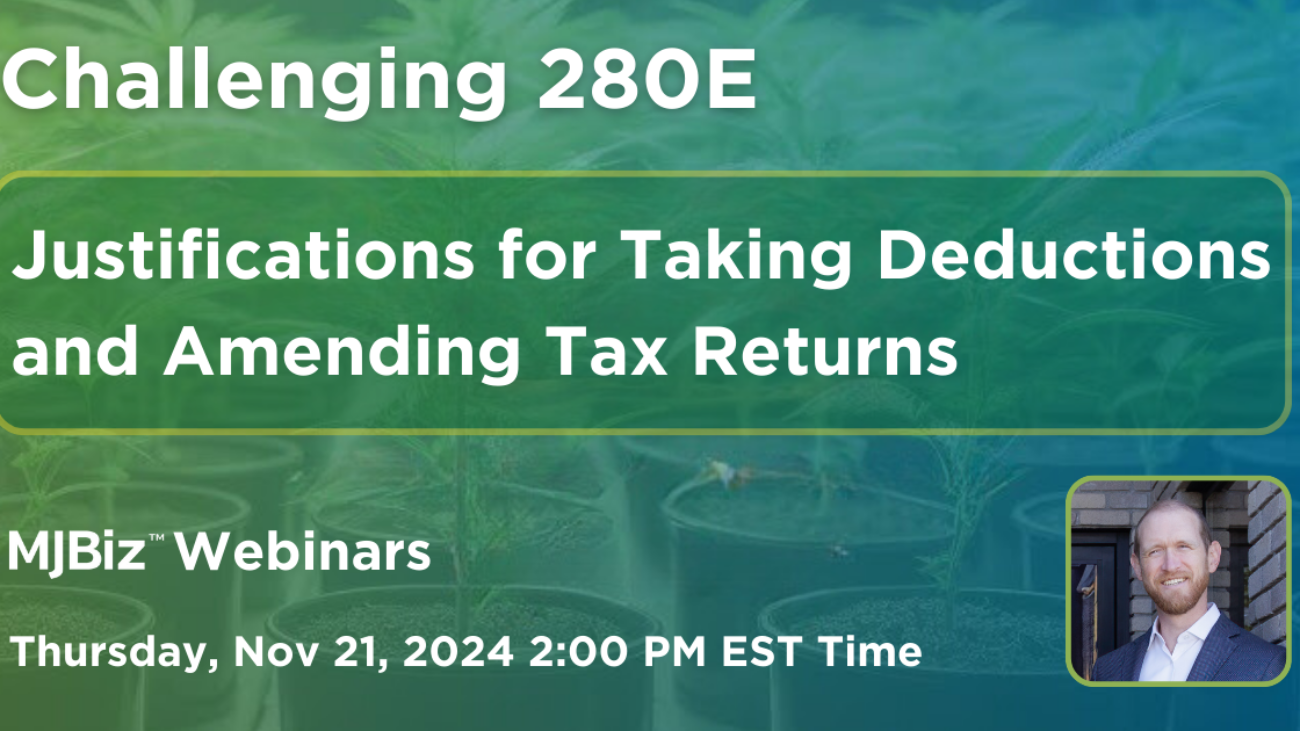
Challenging 280E: Justifications for Taking Deductions and Amending Tax Returns
With recent shifts in federal policy, cannabis businesses face an unprecedented opportunity to challenge 280E. Despite the IRS’s warnings of increased enforcement against companies that do not comply, the cannabis industry is taking bold action by amending tax returns and refusing to reduce deductions.
Numerous cannabis operators, including Curaleaf, Cresco Labs, and Ascend Wellness, have announced their intentions to prepare tax returns without reducing deductions for 280E. Sparked by Trulieve’s receipt of a $113,000,000 refund following amended filings, many businesses are now amending their own returns to reclaim lost deductions. Additionally, industry leaders like Canna Provisions and Verano Holdings Corp. have taken their case to the U.S. Court of Appeals, asserting that the Controlled Substances Act (CSA) should not apply in states with regulated cannabis industries. Finally, a compelling argument asserts that cannabis never met the criteria for a Schedule I drug designation. The DOJ itself concluded that the DEA’s test for defining cannabis as a Schedule I substance was “impermissibly narrow,” raising questions about whether 280E applies to cannabis as the code is written.
Join us for the upcoming webinar, “Challenging 280E: Justifications for Taking Deductions and Amending Tax Returns.” This in-depth session will dive into:
· A historical overview of the cannabis industry’s strategies to mitigate the effects of 280E, including discussions and applications of tax code sections 263(a), 471(a), and 471(c).
· The justifications being used by MSOs like Trulieve to amend tax returns and reclaim disallowed deductions.
· The lawsuit pursued by Verano Holdings and Canna Provisions and its implications if successful.
· Recent Supreme Court actions that undermine the applicability of the CSA and, therefore, 280E.
· The implications of the imminent reclassification of cannabis to a Schedule III substance.
· The statutes of limitations for amending returns and the potential risks of taking bold actions.



